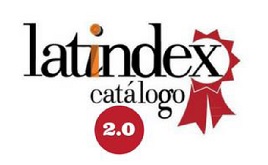Virtual pedagogical strategies for teaching - learning in higher education
DOI:
https://doi.org/10.53641/junta.v1i1.4Keywords:
technology, competencies, virtual classroom, virtual educationAbstract
This article describes the evolution of virtual university education in current times. In the first place, the characteristics of the new teaching contexts and the importance of training in competencies are exposed, and a review is made of the skills that students must develop for their performance in the 21st century, proposed from various academic fields. Then, the incorporation of ICT in the university is analyzed, as well as innovation and the use of technology in the classroom by identifying various strategies for this. In this line, it is specified how to select the teaching-learning methodological approach, from the different pedagogical models of education in general and through the analysis of different teaching theories. Subsequently, the contextualization of learning is considered, the use of the educational platform and various lines of action for the incorporation of ICT, as well as the development of a course with the characteristics of the different activities that must be developed. In relation to this, the resources for the elaboration of the materials to be used in a course according to the characteristics of the students are presented. Finally, the different teaching roles and the competencies that must be developed according to each function are described.
Downloads
References
ADELL, J. (2004). Nuevas tecnologías en la formación presencial: del curso on line a las comunidades de aprendizaje. Qurriculum: Revista de teoría, investigación y práctica educativa, 57-92.
BOLIVAR, J., & ROJAS , F. (2014). Estudio de la autopercepción y los estilos de aprendizaje como factores asociados al rendimiento académico en estudiantes universitarios. Buenas Prácticas de Innovación Educativa - CINAIC .
CABRERO, J., & ROMAN, P. (2006). E - Actividades Un referente b+asico para la formación en Internet. Sevilla: Eduforma.
COLL, C., POZO, J., SARABIA, B., & VALLS, E. (1992). Los contenidos de la reforma: Enseñanaza y Aprendizaje de conceptos, procedimientos y actitudes. Madrid: Santillana.
Competencias del Siglo XXI. (20 de junio de 2017). Obtenido de http://www.fod.ac.cr/competencias21/index.php/acerca-de-las-competencias#.WVPSG2g1_IV
DÁVILA ESPINOZA, S. (2006). "El aprendizaje significativo: esa extraña expresión utilizada por todos y comprendida por pocos". Contexto Educativo.
DIAZ, F., & HERNÁNDEZ, G. (2002). Estrategias docentes para un aprendizaje significativo. México: Mac Graw Hill.
FACER, K. (2011). Learning Futures. Education, technology and social change. Londres: Routledge.
FALCO, M. (2017). Reconsiderando las prácticas educativas: TICs en el proceso de enseñanaza - aprendizaje. Tendencias pedagógicas N° 29.
GARCÍA ARETIO, L., RUIZ , M., & DOMINGUEZ, D. (2007). De la educación a distancia a la educación virtual. Barcelona: Ariel.
GONRING, P; RAMSEY, B. (2016). The William & Flora Hewlett Foundation. Obtenido de http://www.hewlett.org/building-deeper-learning-field-grant/
GROS, B. (2011). Evolución y retos de la educación virtual: construyendo en el siglo XXI. BArcelona: UOC.
HIGHER, E. (2015). Everything you need to know about designing polysyncronous learning spaces. Insitute for the future. (1 de junio de 2017). Obtenido de http://www.iftf.org/home
JAGO, W. (2011). Transforma tu cerebro conPNL. Urano.
JENKINS, H. (2006). Convergence Culture: Where Old an New Media Collide. New YOrk University Press.
JOHNSON, L. (2016). NMC Informe Horizon. Texas: The New Media Consortium.
JOHNSON, S. (2005). Everything Bad is Good For You. How Today´s Popular Culture is Actually Making US Smarte. New York: New York University Press.
LABRADOR, M., & ANDREU, M. (2008). Metodologías Activas. Valencia: Universisdad Politécnica de Valencia.
LLORENTE, M. (2005). "La tutoría virtual: técnicas, herramientas y estrategias". Universidad de Sevilla.
LOPREZ SEGRERA, F. (s.f.). "Globalización y Educación Superior en América Latina y el Caribe". IESALC/UNESCO.
O´CONNOR, J., & SEYMUR, J. (1996). PNL Para Formadores. Urano.
OCDE. (2010). Inspired by Technology, Driven by Pedagogy: A Systemic Approach to Technology - BAsed School Innovations. En C. f. OCDE.
PERÉ, N. (2017). Apuntes para analizar la relación entre innovación, Tic y formación pedogógico didáctica. Praxis & Saber, 15-33.
RODES , V., & PERÉ, N. (2005). Concepciones, modelos y prácticas de educación universitaria semipresencial y a distancia. Formación Docente, 61.
RODRIGUEZ, M. (2012). El tutor como pieza clave en el rompecabezas de la educación en línea. Aprendizaje y mediación pedagogica con tecnologias digitales, (págs. 352-361).
SILVA QUIROZ, J. (2004). Diseño y moderación de entornos virtuales de aprendizaje.
SILVA, J. (2017). Un modelo pedagógico vrtual centrado en las e-actividades. Revista de Educación a Distancia.
SVETLICHICH DUQUE, M. E. (2011). Una mirada de la educación mediada con tecnología: "la cercanía de la distancia". III Jornadas Académicas de la Facultad de Ciencias Económicas y Administración.
SVETLICHICH, M. (2013). Educación a distancia: Competencias docentes para alumnos interactivos. Uruguay: XXX CIC.
SVETLICHICH, M. (2015). La emoción de aprender: herramientas y técnicas de enseñanza - aprendizaje en un aula virtual. X Congreso de Educadores del Area Contable. Santo Domingo.
UNESCO. (2008). Estándares de Competencias TIC para docentes. Paris: UNESCO.
UNESCO. (2012). Aprendizaje movil para docentes en América Latina. Análisis del potencial de las tecnologías móviles para apoyar a los docentes y mejorar sus prácticas. Paris: UNESCO.
URDANETA, M., & GUANIPA, P. (2007). Perfil de competnecias del docente tutor e línea pra la educación a distancia. Revista de Tecnología de Información y Comunicación en Educación, 111-134.
WICKLINE, H. (2014). The William & Flora Hewlett Foundation. Obtenido de http://www.hewllett.org/a-deeper-look-at-deeper-learning/
Fecha de recepción: 20/10/2018
Fecha de aceptación: 21/11/2018
Correspondencia: Mariela.svetlichich@gmail.com
Downloads
Published
How to Cite
Issue
Section
License
Copyright (c) 2018 MARIELA SVETLICHICH DUQUE

This work is licensed under a Creative Commons Attribution 4.0 International License.








